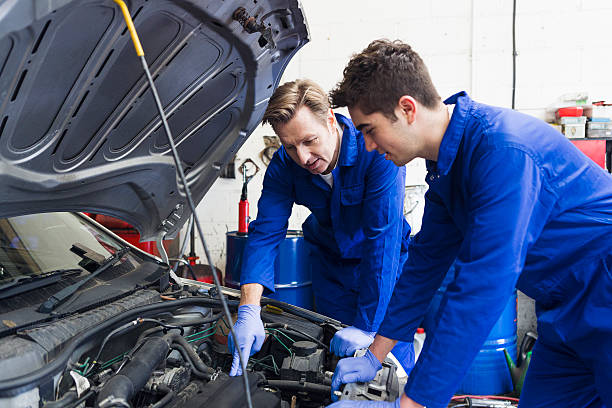Keeping your car well-maintained isn’t just about avoiding unexpected breakdowns – it’s about safety, efficiency, and protecting your vehicle’s long-term value. In the UK, regular servicing helps ensure your car runs smoothly and meets legal requirements, such as MOT standards.
However, one of the most common questions drivers ask is: “How much does a typical car service cost?” The answer depends on several factors, from the type of service to your car’s make and model.
Understanding the Types of Car Services
Before looking at costs, it’s important to know that not all services are the same. Most UK garages offer three main types:
- Interim Service – A lighter check, usually done every 6 months or 6,000 miles, covering essentials like oil changes and basic inspections.
- Full Service – A more detailed inspection, recommended annually or every 12,000 miles, including filters, fluid checks, and comprehensive safety checks.
- Major Service – The most thorough option, typically every 2 years, involving additional replacements such as spark plugs or brake fluid.
These categories exist so you can match your service schedule to your car’s needs. Skipping the right type at the right time may cost more in repairs later.
Average Costs in the UK
Service prices vary across the UK due to location, garage type, and car make. On average, you can expect the following price ranges:
- Interim Service – Around £75–£125 at independent garages, and £120–£180 at main dealerships.\
- Full Service – Typically £150–£250 at independents, and £200–£350 at dealerships.
- Major Service – Usually £250–£400 at independents, and £350–£600 at dealerships.
These figures are general estimates, and premium brands like BMW, Mercedes, or Jaguar often cost more due to specialist parts and labour rates.
Choosing a smaller local garage can often save you money without compromising on quality, as long as they are VAT-registered and use manufacturer-approved parts.
Factors That Influence Service Costs
Several variables can affect what you pay for a car service in the UK. It’s worth being aware of these to understand your quote better:
- Make and Model – Luxury or performance cars often require specialist labour and more expensive parts.
- Location – Labour rates in London and the South East are usually higher than in the North or rural areas.
- Service Level – The more comprehensive the service, the higher the cost due to time and parts needed.
- Dealership vs Independent – Main dealerships often charge more for labour but may include extras like software updates.
- Mileage and Condition – Older or high-mileage vehicles may need more replacement parts, increasing costs.
By understanding these factors, you can better plan your budget and avoid surprises.
Ways to Save on Car Servicing
While car servicing is essential, there are ways to reduce your costs without compromising safety or quality. Consider the following:
- Shop Around – Compare quotes from multiple garages, but ensure they meet manufacturer requirements.
- Use a Trusted Independent Garage – They often charge less than dealerships while still offering high-quality work.
- Combine with MOT – Many garages offer discounts if you book your service and MOT together.
- Regular Maintenance at Home – Simple tasks like checking tyre pressure, topping up fluids, and replacing wiper blades can reduce wear and tear.
- Check for Service Plans – Some garages offer fixed-price plans that spread the cost over the year.
These steps can help you keep servicing affordable while ensuring your car stays in top condition.
In the UK, the cost of a typical car service can range from under £100 for an interim check to over £500 for a major service at a main dealer. The exact price depends on your car, location, and choice of garage.
While it may be tempting to skip a service to save money, this often leads to more expensive repairs in the long run. By understanding the different service types, knowing average costs, and following money-saving tips, you can keep your car running safely and efficiently without overspending.












